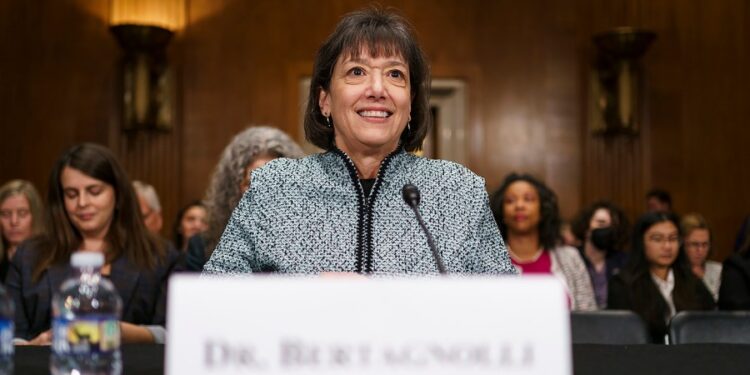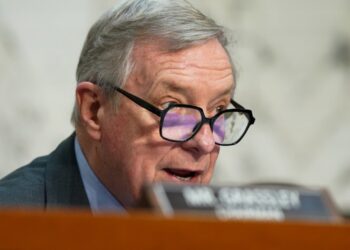
National Institutes of Health director Monica Bertagnolli will resign on Jan. 17, she told staff this week, ending her tenure leading the $48 billion biomedical research agency after only a year.
“I am so proud of what NIH has been able to achieve in such a short time under my leadership,” Bertagnolli said in her announcement, touting a list of initiatives launched that she hopes the next administration will continue.
The NIH has typically been an agency with bipartisan support, and Bertagnolli’s predecessor, Francis Collins, served three administrations over more than 12 years. But lingering Republican anger over the handling of the COVID-19 pandemic has pushed NIH squarely into partisan crosshairs.
The agency faced heavy criticism, especially targeting leaders like Collins and Anthony Fauci, who led the National Institute of Allergy and Infectious Diseases for 38 years.
Bertagnolli has spent much of the past year trying to shore up support among House and Senate lawmakers who want to implement dramatic changes, including shrinking the agency from 27 separate institutes and centers to 15.
Other proposals included a term limit for institute directors with a maximum duration of two terms, adding new oversight measures for grantees, and adding new restrictions on research grants that present national security risks.
President-elect Trump has nominated his own NIH director, Stanford University health economist Jay Bhattacharya, who could spearhead some of the major restructurings Bertagnolli worked to head off.
Bhattacharya was one of the authors of an open letter called “The Great Barrington Declaration,” which criticized COVID mandates and called for “herd immunity.”
Trump’s health team also includes Robert F. Kennedy Jr. as the nominee to lead NIH’s parent agency, the Department of Health and Human Services.
Kennedy, a vaccine skeptic who also questions the safety of fluoridated water, has called for suspending infectious disease research at NIH in favor of focusing on chronic diseases as part of his Make America Healthy Again agenda.
Kennedy has also called for the firing of hundreds of NIH staff, a task that will be difficult without congressional action.







